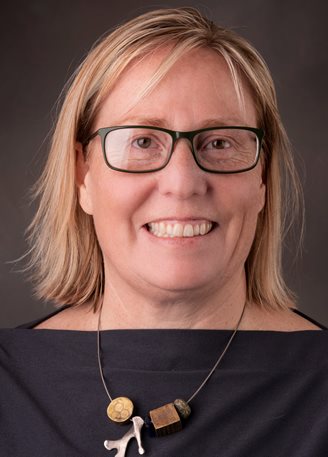Over the last two years, Ketcham has written thought-provoking blog posts for the Center for Engaged Learning focusing on ableism in academia, designing programs and services inclusive of all students, and mentoring across difference.
Elon University’s Center for Engaged Learning Scholars position is an opportunity for an Elon faculty member to develop and deepen a professional development trajectory that includes scholarly activity on a high-impact practice or other engaged learning topic.
Professor of Exercise Science Caroline Ketcham chose the timely topic of high-impact practices (HIPs) for neurodiverse and physically disabled student populations. The topic is related to her disciplinary research, which focuses on movement neuroscience. She serves as co-chair of the Elon BrainCARE Research Institute, and was recently awarded Elon’s 2023 Distinguished Scholar Award.

Ketcham has wrote many blog posts posing difficult but important questions about ableism in academia. In her post, “Is Rigor Code for Ableism,” she asks, “Should we consider that rigor for our students and our course goals might, and should, look different? Is our continued traditional definition of rigor ableist?”
She encourages us to consider instead: “It isn’t about how much [students] can read, absorb and synthesize, but it is about how they can reflect on the material and apply it to their now and their next.”
Ketcham discusses Universal Design for Learning in desk design and facility and space planning, as well as course design and assessment. In “Ways to Build Habits of Action in Our Classrooms,” she provides ideas for instructors to help students from varying backgrounds, abilities, and experiences be successful in the classroom.
Many of her blog posts address the unique barriers and challenges that disabled students face when participating in high-impact practices. She has posts discussing studying abroad, interviewing for internships, jobs, scholarships/awards and attending conferences and school events. Much has been written on the excellent benefits for students who participate in high-impact practices, but Ketcham explores the barriers some students face and discusses how we can better facilitate the participation of all students.
Ketcham is a committed teacher-mentor-scholar who has mentored over 60 undergraduate research students, and this interest has led to research on high-quality mentoring and co-mentoring.
As CEL Scholar, she has extended her research to consider mentoring across difference. She acknowledges the importance of identity representation among mentors, but she also discusses training for mentors so that they can work better with students different from themselves. She writes, “There is ample evidence that we connect with people who are like us—but how does this translate to how we structure mentoring and who gets mentored in our institutions? How does this translate to who has access to and participates in HIPs, which are often quality mentored experiences?”
You can see a complete list of Ketcham’s blog posts on the Center for Engaged Learning’s website. Although her CEL Scholar appointment has ended, CEL will continue to explore this topic with Ketcham’s leadership.
During a two-year appointment, CEL Scholars develop expertise in a specific aspect of engaged learning and create resources on that topic to be shared through CEL’s website and in other scholarly venues. The CEL Scholar position is an opportunity for an Elon faculty member to develop and deepen a professional development trajectory that includes scholarly activity on a high-impact practice or other engaged learning topics. Learn more about the CEL Scholars program.
CEL intern Caroline Bunder ’23 contributed to this article.


